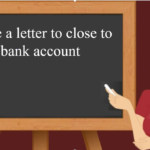Conditionals in Grammar:
Conditionals in grammar are structures that express hypothetical situations, actions, or events based on certain conditions. They often involve the use of conditional clauses (if-clauses) and result clauses. Conditionals are categorized into different types based on the likelihood or reality of the condition being met. The main types are Zero Conditional, First Conditional, Second Conditional, Third Conditional, and Mixed Conditionals.
1. Zero Conditional:
The Zero Conditional is used to express general truths, facts, or situations that are always true.
Structure: If + present simple, present simple
Examples:
-
If you heat water to 100 degrees Celsius, it boils.
- Explanation: This structure is used for statements that are universally true.
-
If it rains, the grass gets wet.
- Explanation: In this case, the condition (rain) always leads to the result (the grass gets wet).
-
If you mix red and blue, you get purple.
- Explanation: This structure is used for expressing scientific or general truths.
- Explanation: This structure is used for expressing scientific or general truths.
2. First Conditional:
The First Conditional is used to talk about future situations that are likely to happen based on a present or real condition.
Structure: If + present simple, will + base form
Examples:
-
If it rains tomorrow, we will stay indoors.
- Explanation: The condition (rain tomorrow) is likely to happen, and the result is a future action (we will stay indoors).
- Explanation: The condition (rain tomorrow) is likely to happen, and the result is a future action (we will stay indoors).
-
If she studies hard, she will pass the exam.
- Explanation: The condition (she studies hard) is a present action, and the result is a future outcome (she will pass the exam).
- Explanation: The condition (she studies hard) is a present action, and the result is a future outcome (she will pass the exam).
-
If you don’t hurry, you will miss the train.
- Explanation: The condition (don’t hurry) is a present action, and the result is a future consequence (you will miss the train).
- Explanation: The condition (don’t hurry) is a present action, and the result is a future consequence (you will miss the train).
3. Second Conditional:
The Second Conditional is used to talk about unreal or hypothetical present or future situations and their likely results.
Structure: If + past simple, would + base form
Examples:
-
If I won the lottery, I would travel the world.
- Explanation: The condition (I won the lottery) is unreal, and the result is a hypothetical action (I would travel the world).
- Explanation: The condition (I won the lottery) is unreal, and the result is a hypothetical action (I would travel the world).
-
If it snowed in summer, people would be surprised.
- Explanation: The condition (it snowed in summer) is unlikely, and the result is a hypothetical reaction (people would be surprised).
- Explanation: The condition (it snowed in summer) is unlikely, and the result is a hypothetical reaction (people would be surprised).
-
If you called her, she would come to the party.
- Explanation: The condition (you called her) is a hypothetical action, and the result is a hypothetical consequence (she would come to the party).
4. Third Conditional:
The Third Conditional is used to talk about unreal or hypothetical past situations and their imagined results.
Structure: If + past perfect, would have + past participle
Examples:
-
If I had known you were coming, I would have baked a cake.
- Explanation: The condition (I had known) is unreal in the past, and the result is a hypothetical action in the past (I would have baked a cake).
- Explanation: The condition (I had known) is unreal in the past, and the result is a hypothetical action in the past (I would have baked a cake).
-
If they had taken the earlier flight, they would have arrived on time.
- Explanation: The condition (they had taken the earlier flight) is a hypothetical action in the past, and the result is a hypothetical consequence in the past (they would have arrived on time).
- Explanation: The condition (they had taken the earlier flight) is a hypothetical action in the past, and the result is a hypothetical consequence in the past (they would have arrived on time).
-
If it had rained yesterday, the streets would have been wet.
- Explanation: The condition (it had rained yesterday) is unreal, and the result is a hypothetical situation in the past (the streets would have been wet).
5. Mixed Conditionals:
Mixed conditionals combine elements of different types of conditionals, mixing past and present forms.
Examples:
-
If she had studied harder, she would be in a better university now.
- Explanation: The condition (she had studied harder) is a past unreal action, and the result is a present hypothetical situation (she would be in a better university now).
-
If I had bought a ticket, I would be at the concert right now.
- Explanation: The condition (I had bought a ticket) is a past unreal action, and the result is a present hypothetical situation (I would be at the concert right now).
- Explanation: The condition (I had bought a ticket) is a past unreal action, and the result is a present hypothetical situation (I would be at the concert right now).
-
If it rains tomorrow, they will cancel the outdoor event.
- Explanation: The condition (it rains tomorrow) is a present real or likely situation, and the result is a future action (they will cancel the event).
Understanding the different types of conditionals allows for precise communication of various hypothetical or real situations and their potential outcomes in English grammar.
A) First Conditional
B) Second Conditional
C) Zero Conditional
Show/Hide
Answer: C) Zero Conditional
Explanation: The Zero Conditional is used for statements that are universally true.
A) Third Conditional
B) Second Conditional
C) First Conditional
Show/Hide
Answer: B) Second Conditional
Explanation: The Second Conditional is used for unreal or hypothetical present or future situations.
A) Zero Conditional
B) First Conditional
C) Second Conditional
Show/Hide
Answer: B) First Conditional
Explanation: The sentence expresses a likely future action based on a present condition.
A) First Conditional
B) Second Conditional
C) Third Conditional
Show/Hide
Answer: C) Third Conditional
Explanation: The Third Conditional is used for unreal or hypothetical past situations.
A) First Conditional
B) Third Conditional
C) Second Conditional
Show/Hide
Answer: B) Third Conditional
Explanation: The sentence talks about a hypothetical past action and its imagined result.
A) Third Conditional
B) Second Conditional
C) First Conditional
Show/Hide
Answer: C) First Conditional
Explanation: The First Conditional is used for likely future actions based on present conditions.
A) Second Conditional
B) First Conditional
C) Third Conditional
Show/Hide
Answer: C) Third Conditional
Explanation: The sentence discusses a hypothetical past condition and its imagined result.
A) Third Conditional
B) First Conditional
C) Second Conditional
Show/Hide
Answer: A) Third Conditional
Explanation: The Third Conditional is used for unreal past situations and their imagined results.
A) Second Conditional
B) Zero Conditional
C) First Conditional
Show/Hide
Answer: B) Zero Conditional
Explanation: The sentence expresses a general truth or fact that is always true.
A) Mixed Conditionals
B) Second Conditional
C) First Conditional
Show/Hide
Answer: A) Mixed Conditionals
Explanation: Mixed Conditionals combine elements of different types, involving both past and present forms.





